Published Mar 8, 2021
Loss and “The Loss:” How Deanna Troi Counseled Me Through COVID-19
"Every new day brings a new opportunity for change, new treatments, a new approach or a new improvement."
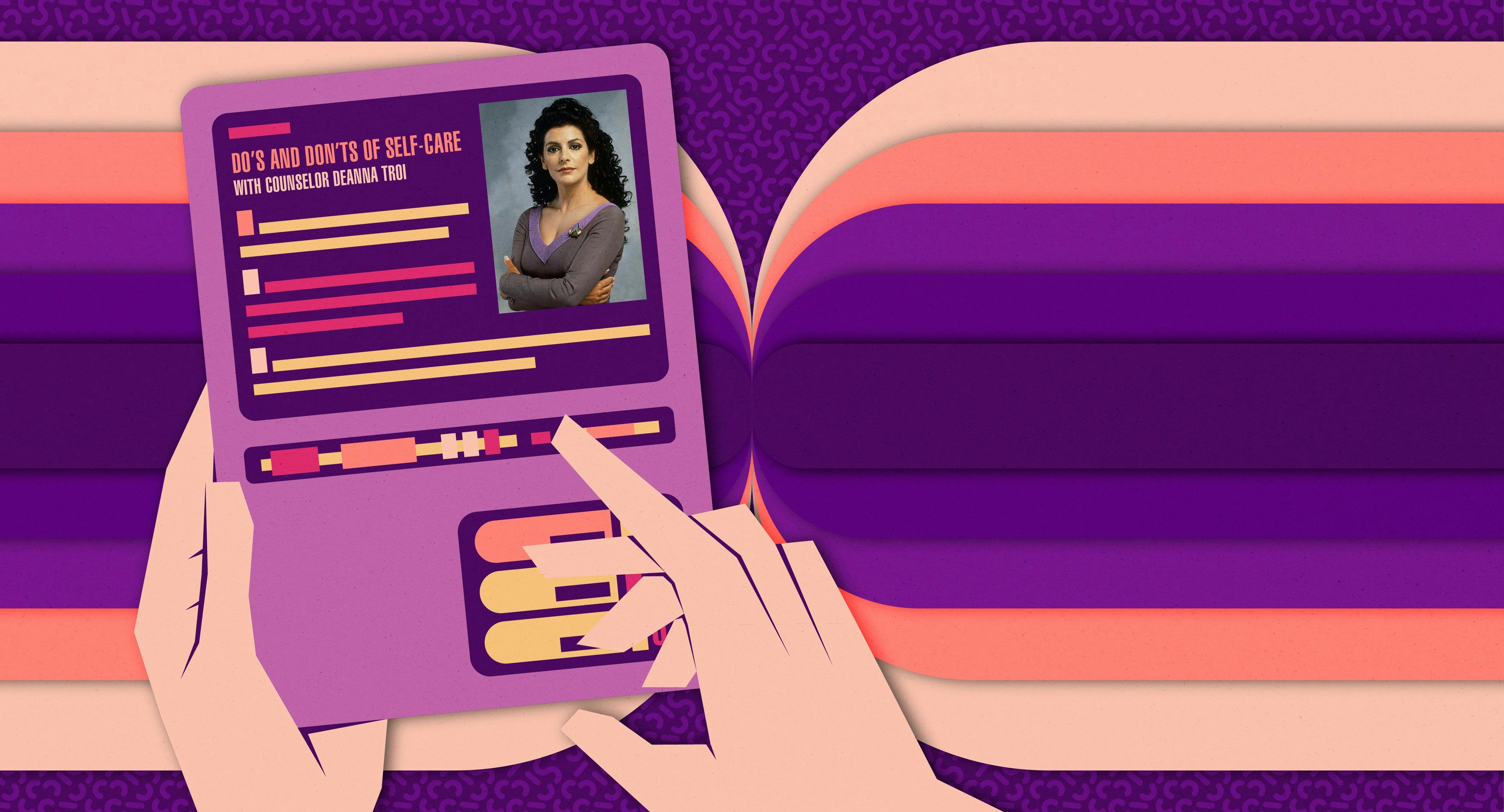
StarTrek.com
I almost burned down my apartment the other day.
One of the benefits of working from home is the ability to multitask, which I often use to get dinner started between work items. I’d just seen a great recipe for a simple mushroom soup and realized I had all the ingredients for it sitting in my fridge; if I got it going now while I was waiting to hear back on a couple things, it’d be ready right around the time my usual early-evening starvation kicked in.
I eyeballed two tablespoons of olive oil into a pot, set my fidgety 40-year-old electric stove to what may or may not be medium-high heat, and immediately heard the clacky-clack Slack notification that meant one of my co-workers was asking me a question. This’ll take a couple minutes anyway, I thought at the oil, and went to sit back down at the makeshift office I’d set up in my living room almost a year ago.
I replied to my co-worker, fired off a couple emails, and had fallen mindlessly back into Twitter doomscrolling when I started having a coughing fit. My eyes were watering, too. My brain ran very slowly through the possibilities —Have I taken my allergy medicine today? Have I been exposed to anybody sick lately? — And it was only very, very late in my processing that I looked away from my monitor to realize that my entire apartment was full of smoke and my kitchen was on fire.
“Ope,” I said.
The first week of November, I had been diagnosed with the Coronavirus, like millions of others. People’s symptoms vary wildly, but one of the major ones for me was a complete loss of smell and taste. When I got better it did return somewhat, but some tastes and odors still eluded me, like garlic and, apparently, the smell of my own impending death.
I smothered the burgeoning grease fire with a lid, gathered up my laptop, and retreated to my closed bedroom while I waited for the smoke to clear. And while I lay there, I had the same thought I’d had repeatedly over the previous four months: This is what Counselor Troi felt like.
What Makes Deanna Troi so Special?
In “The Loss,” which originally aired on December 31st, 1990, the Enterprise-D gets caught in a field of what appears to be two-dimensional plankton and, as a side effect, Counselor Troi loses her empathic sense, her Betazoid ability to feel the presence and emotions of everyone around her. She proceeds to… not take it very well, if I’m putting it charitably.
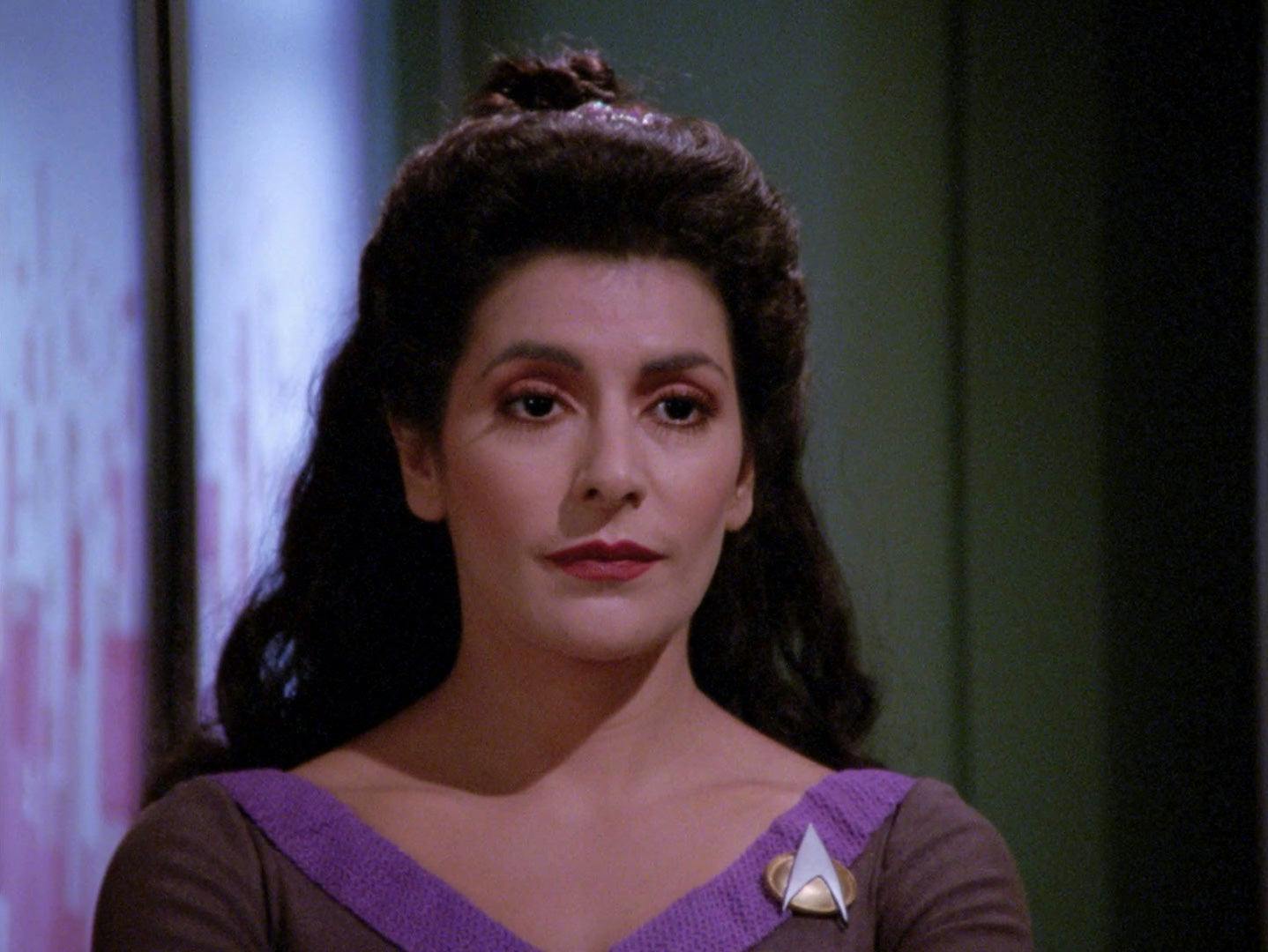
StarTrek.com
To put it less charitably, she snaps at her friends, engages in a lot of unfortunate ableism, pushes people away, doesn’t listen to her doctor, and tries to quit her job after what may have been about a day and a half (it’s hard to say for sure on a show where nobody ever wears different clothes).
That’s all regrettable, but in Deanna’s defense, it’s really upsetting to be told you have brain damage. Or, in my case, nerve damage. In Covid-19 patients, olfactory cells in the upper nasal cavity get knocked out, and while that means your sense of smell should come back at some point, it’s hard to say when.
As far as problems go, I’m lucky and I want to make it very clear that I know that. Plenty of people have come out of Covid with a whole slew of lasting damage to vital organs and lingering issues, and many more never came out of it at all. By comparison, losing one’s sense of smell and taste is an easy and obvious trade. There are inconveniences, though: Do I have bad breath right now? Did I cook dinner right? Does my apartment smell okay? Did I wear this shirt already, or does it need to be washed? And there are dangers, too: Is there a grease fire in my apartment? How about a gas leak? If I drink this milk, will it make me sick? Is there something wrong with my car?
Deanna, too, is very lucky - the sense she’s lost in this episode is one most sapient species in the Trek universe don’t possess, she’s not in pain or danger, and her ability to perform basic tasks hasn’t been hindered. As such, I’ve found myself reflecting back on this episode often the past several months, as her journey provides a laundry list of Do’s and Don't’s for anybody navigating this sort of unfamiliar territory:
Don’t Lash Out
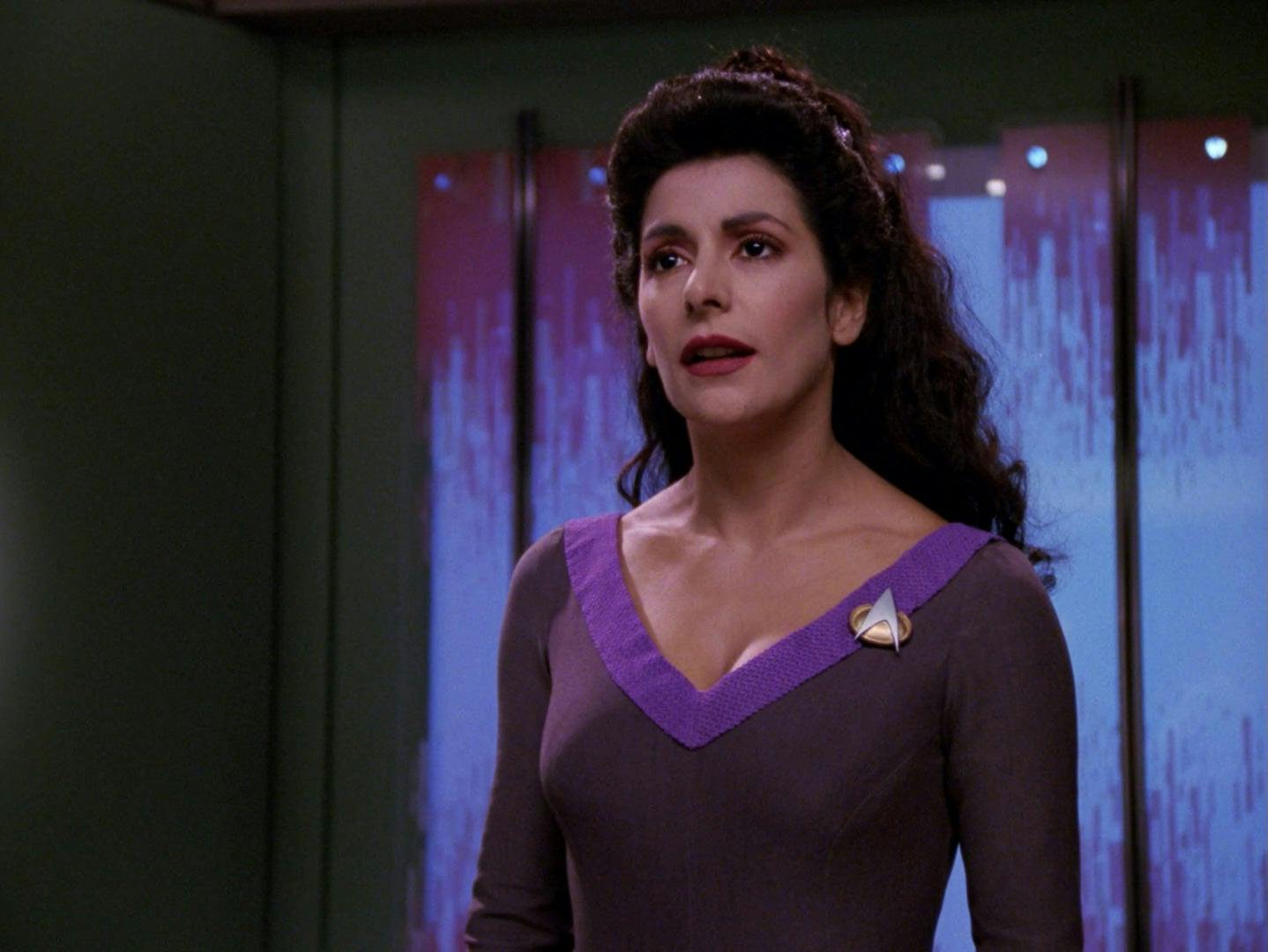
StarTrek.com
Shortly after Deanna gets her diagnosis — a pretty open-ended, inconclusive one — she starts yelling at people, and while I want to stress that it’s really understandable, just because something explains your behavior doesn’t mean it excuses it. She yells at Riker for using their private term of endearment with one another. She yells at Geordi for innocently suggesting it’s a shame they can’t communicate with the alien creatures outside. She yells at Doctor Crusher for treating injured crewmen ahead of her.
I, likewise, got irritable with people - for the first couple of weeks after my diagnosis I had no sense of taste whatsoever, so my girlfriend’s insistence that I try tasting and smelling things was often met by me getting testy. Later, I learned that continuing to try and smell things every day — called “smell training” — is actually one of the suggested treatments for a loss of smell.
Don’t Be Inconsiderate
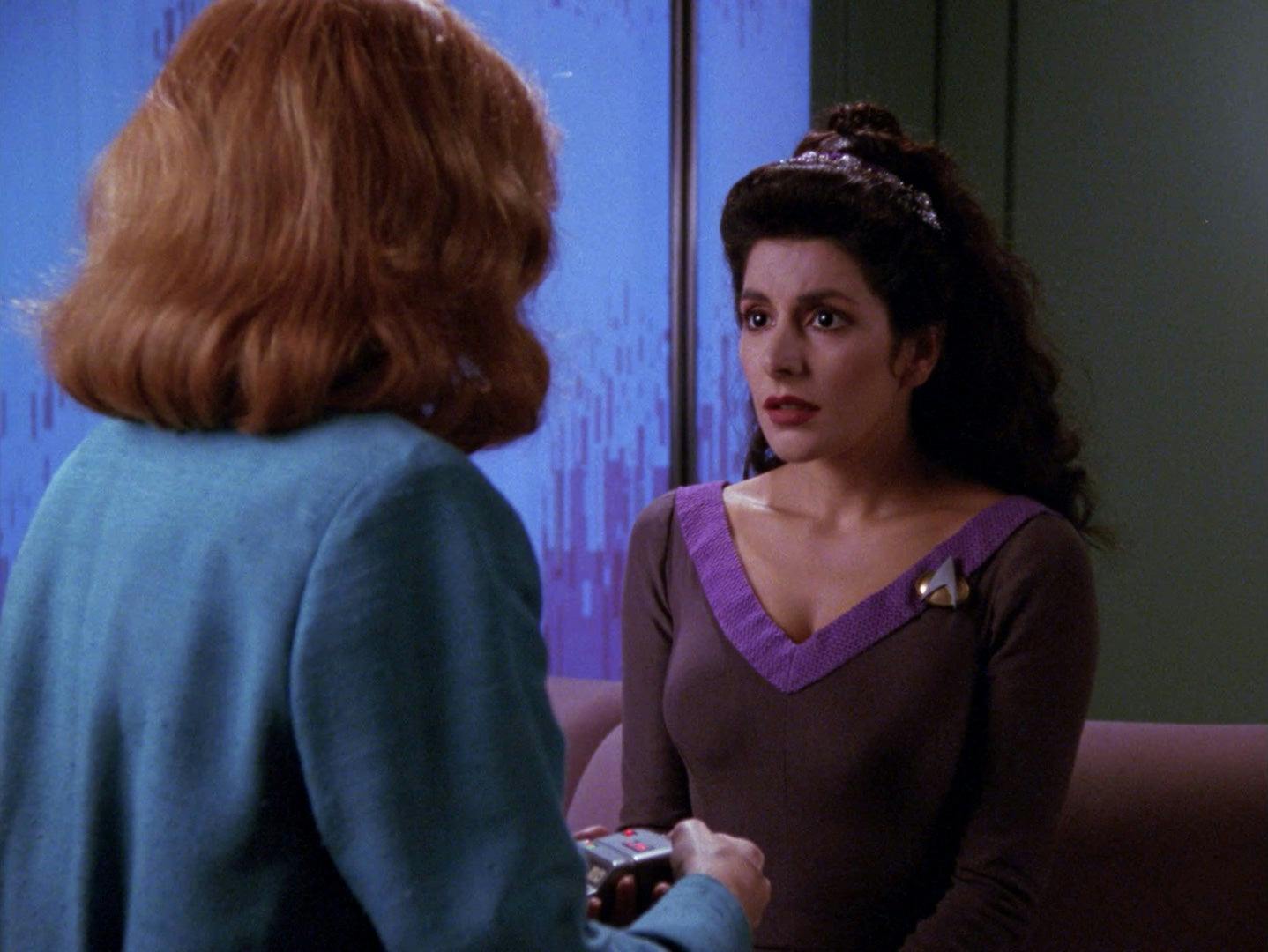
StarTrek.com
When giving voice to her own pain, Troi says a lot of things that really fail to read the room. She says everyone around her is treating her like “the blind woman,” when one of her closest co-workers and dearest friends is literally a blind man. She tells Will Riker that without her empathic senses he is “without depth” and “not really here,” when another one of her closest co-workers and dearest friends is an android who has never once pinged off of her empathic radar and is nevertheless a very real man possessing a great deal of depth.
In my own life, I know many people who can and can’t do various tasks; it’s always a good idea to police the way you word and phrase things, doubly so when you’re upset. A lot of our language is full of ableist holdovers from more-ignorant times; before you slip up and start saying a sense has been “crippled” you might want to remember that language is ever-evolving, regardless of whether you’re in the 21st Century or the 24th.
Do Talk To Your Friends
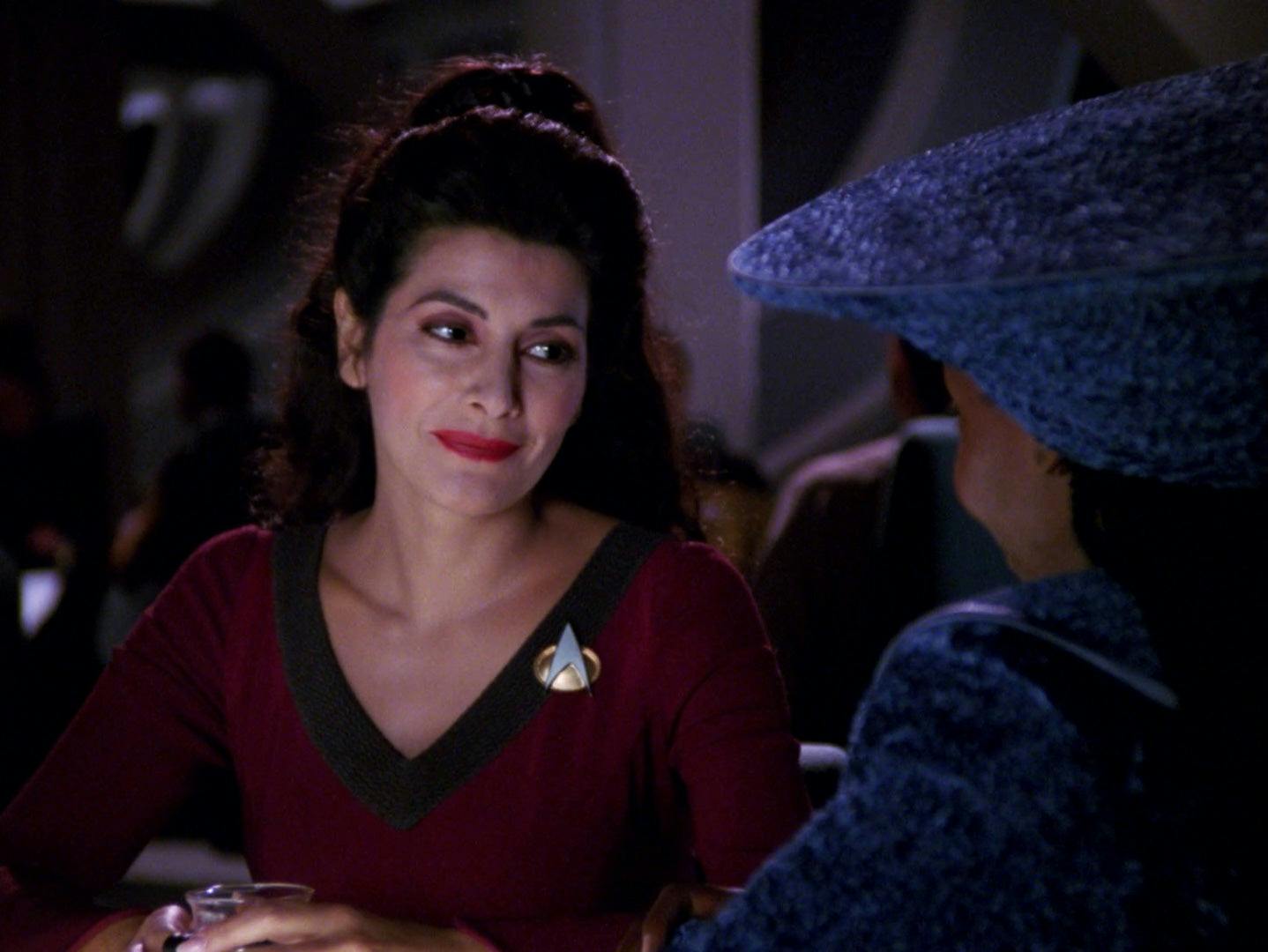
StarTrek.com
Troi pretends she wants to be left alone, but you don’t go to Ten Forward if you don’t want some encouraging mind games from Guinan. Guinan points out to Troi that even without her empathic senses, Troi can tell when Guinan isn’t being serious. She has other skills to draw on, instincts and intuition, and that while those things aren’t perfect they do make life interesting.
No matter what you’re suffering through, if you’ve surrounded yourself with good people in your life sharing your feelings with your friends is a great way to get support, and occasionally good advice.
Don’t Rush To Despair
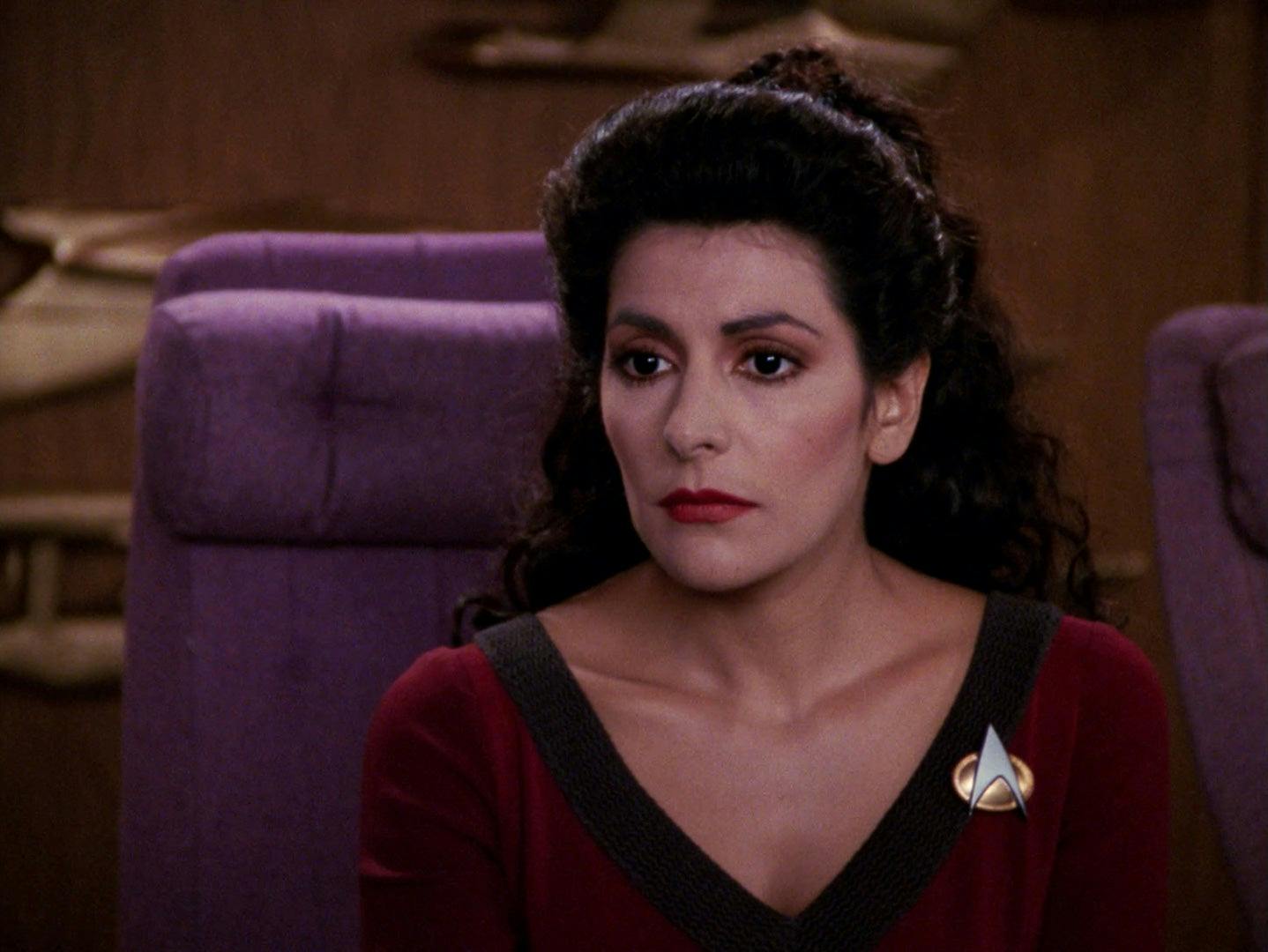
StarTrek.com
After a couple of days dealing with her new situation, Troi decides she’s incapable of performing her job as ship’s counselor and tenders her resignation. This is, under pretty much any circumstances, a gross overreaction.
Do Rely On Your Experience
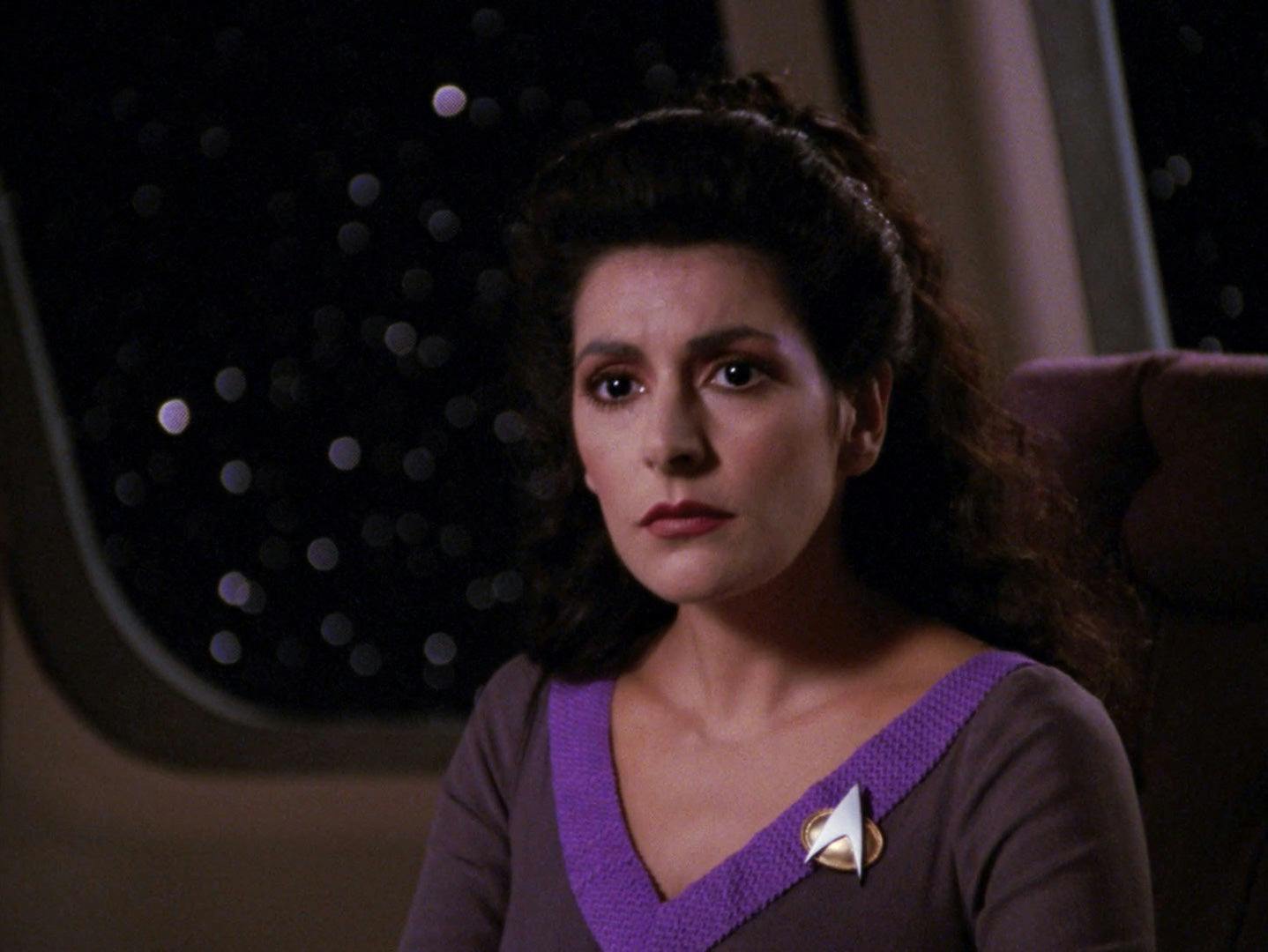
StarTrek.com
Deanna Troi is a trained psychiatrist, and presumably that training goes far beyond what that entails in our own century. She’s got to be the expert on the psychology of multiple different species throughout the Alpha Quadrant, and also an expert on xenopsychology in order to adequately advise Captain Picard on the proper course of action. None of that study and expertise required her empathic abilities, and eventually, working with Data on the problem, Troi was able to crack the solution.
I can experience my way through most problems where my sense and taste fail me. I don’t need to be able to taste garlic to know how much garlic food needs (whatever the recipe says times six). I don’t need to be able to smell myself to know whether I need to take a shower (if you have to ask the answer is usually “yes”). And I don’t actually need to smell smoke to know if my apartment is on fire: what I need to do is replace the batteries in my freaking smoke detector.
Do Have Faith (Of The Heart)
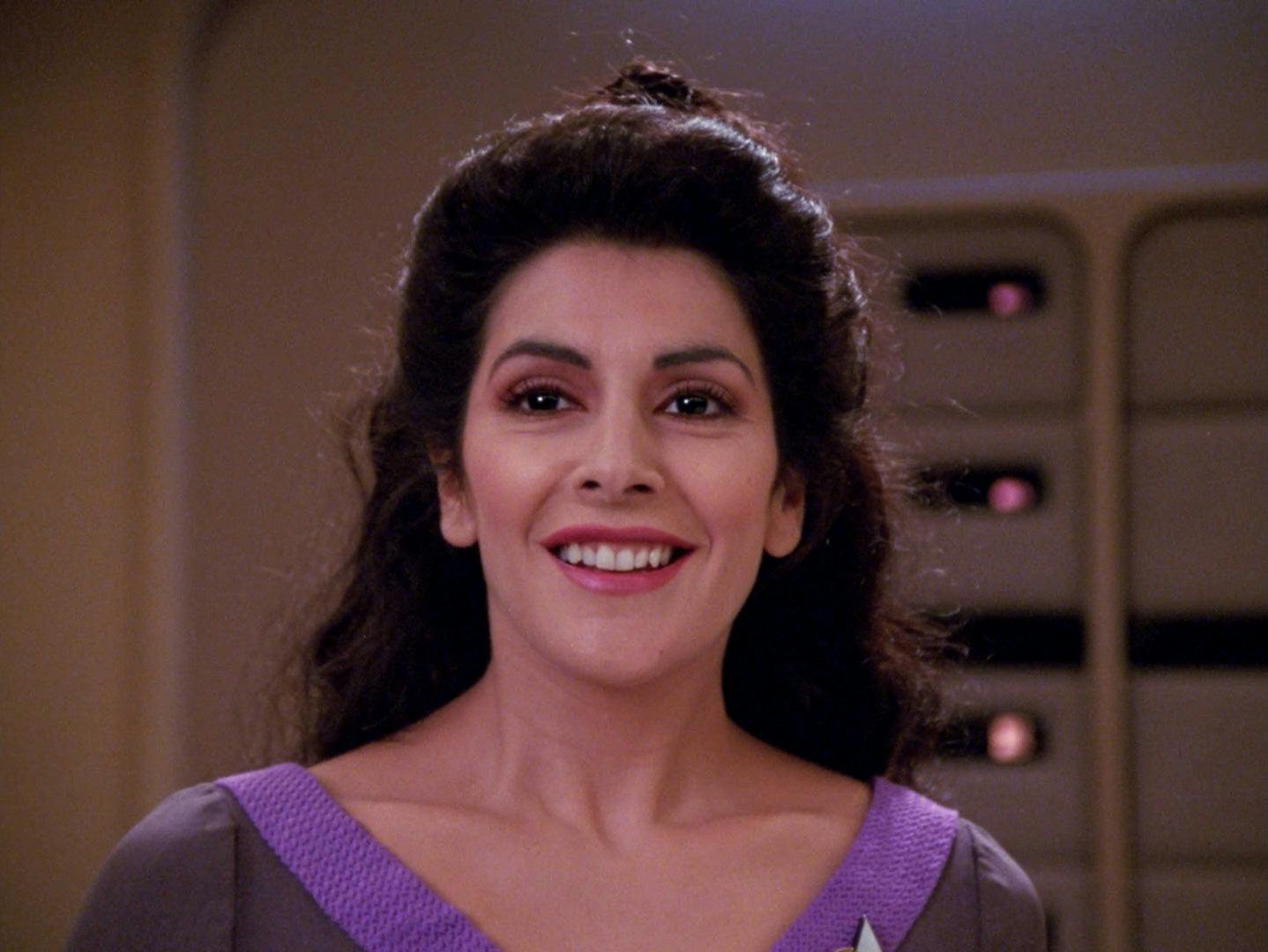
StarTrek.com
Yes, I know that’s the other show, but technically Troi has been on both so she should know about Faith of the Heart. As the episode is nearing the end, Troi seems to have at least somewhat come to terms with her changed capabilities, using her knowledge and experience as a counselor to solve the problem of the week. But acceptance isn’t truly the end of dealing with a new problem, hope is. As the Enterprise breaks free and the colony of organisms continues onward into the cosmic string, Troi finds herself able to sense their emotions once again.
Every new day brings a new opportunity for change, new treatments, a new approach or a new improvement. Just the other day, one of my girlfriend’s co-workers, who has been without his sense of smell for six months, realized it had returned - unfortunately he realized it while he was in the middle of microwaving fish in the communal break room.
I’m hopeful, then, that I could wake up one day to a similar recovery. But no matter what happens with my nose in the coming weeks, I feel like Deanna Troi already counseled me through these problems over 30 years ago.
Sean Kelly (he/him) is a freelance writer based in St. Louis. He occasionally gets depressed that he’ll never know what raktajino tastes like.

